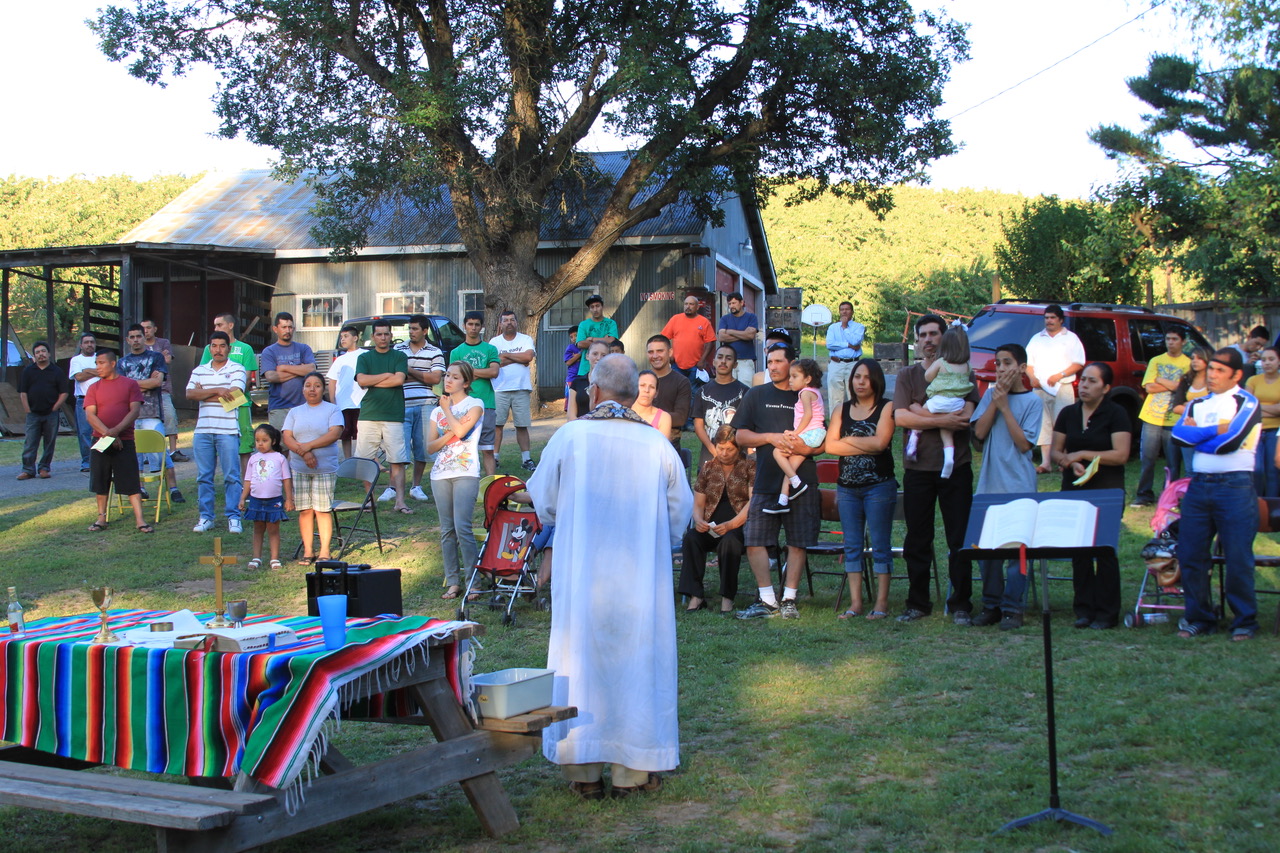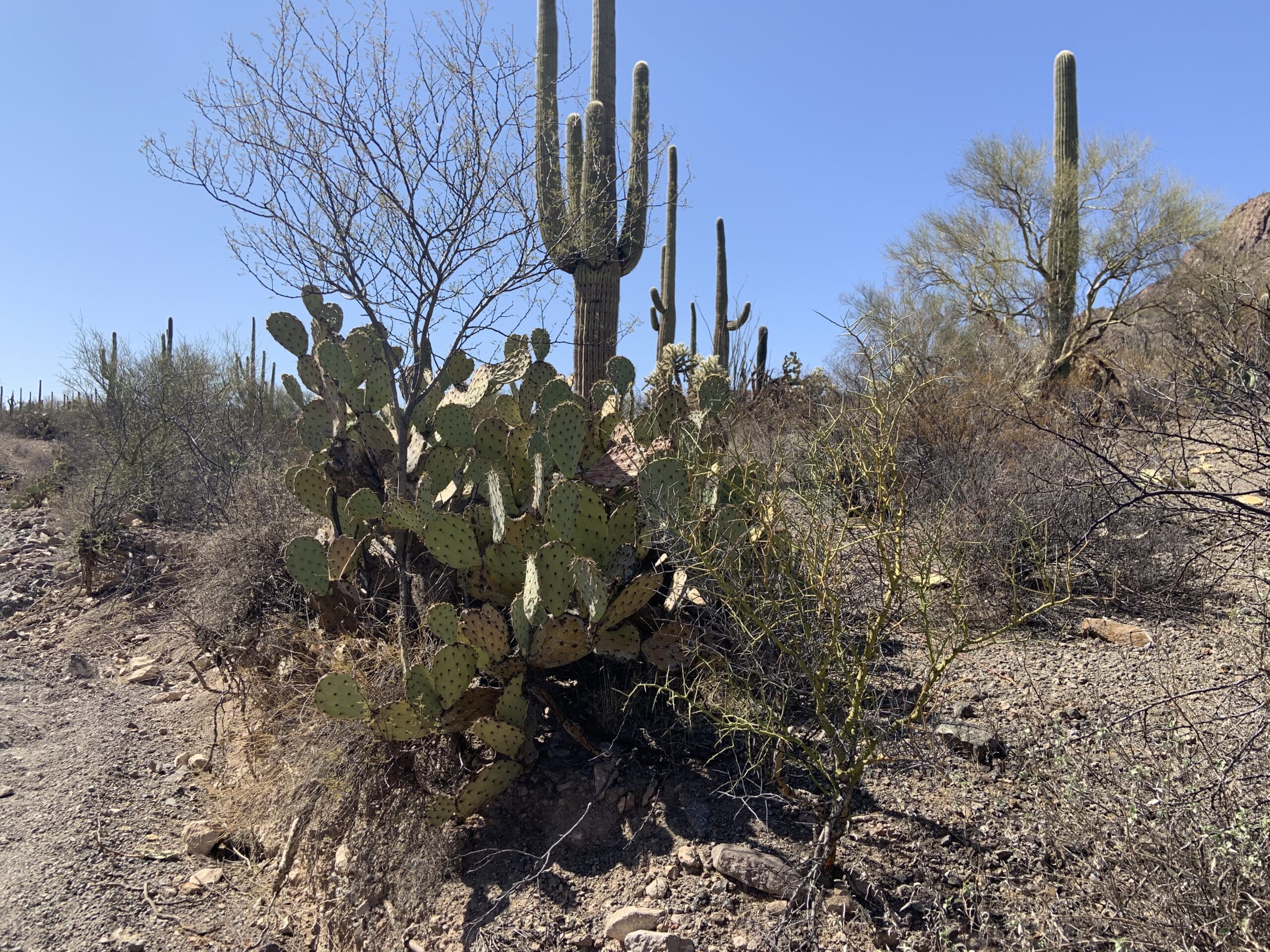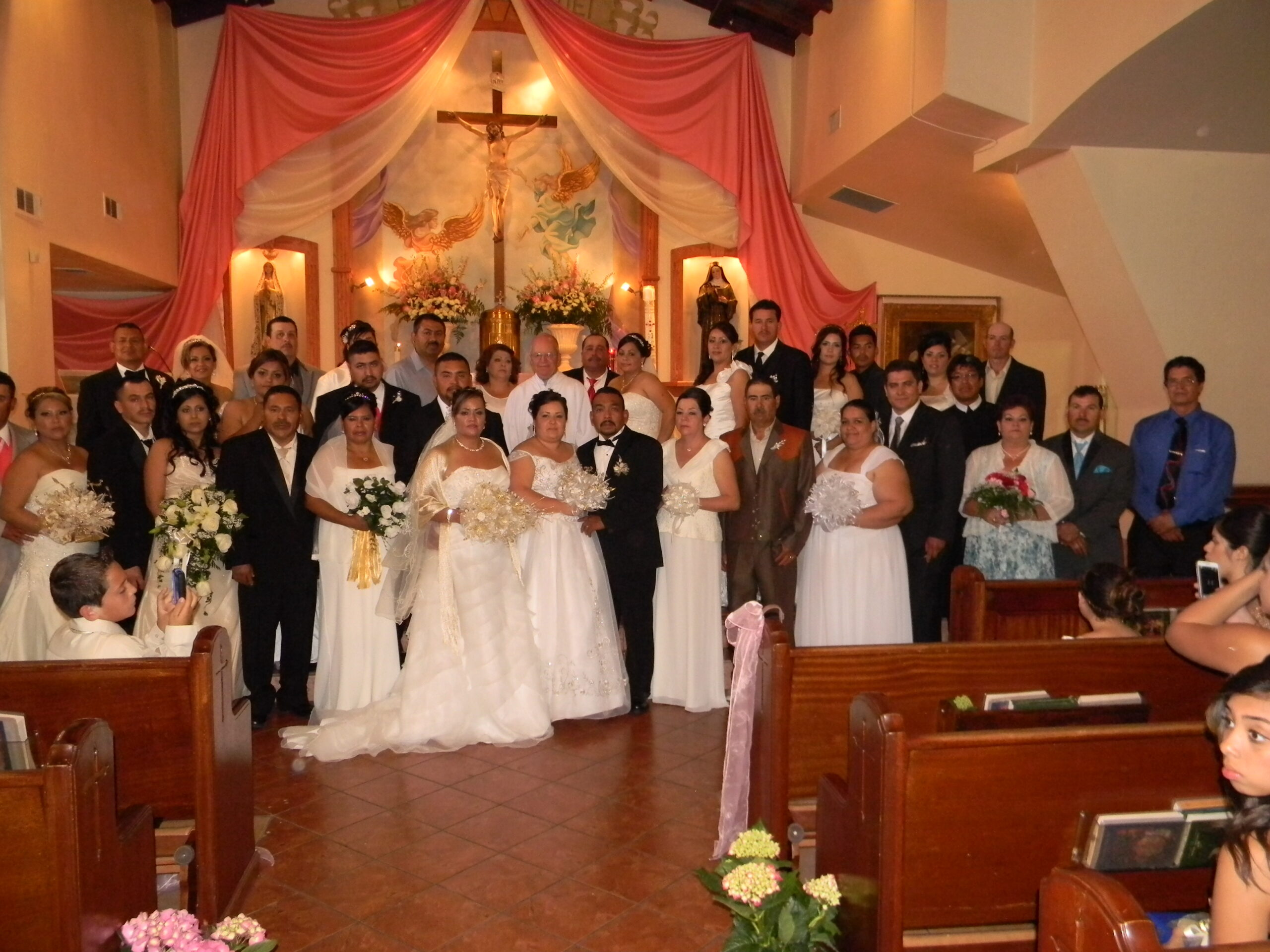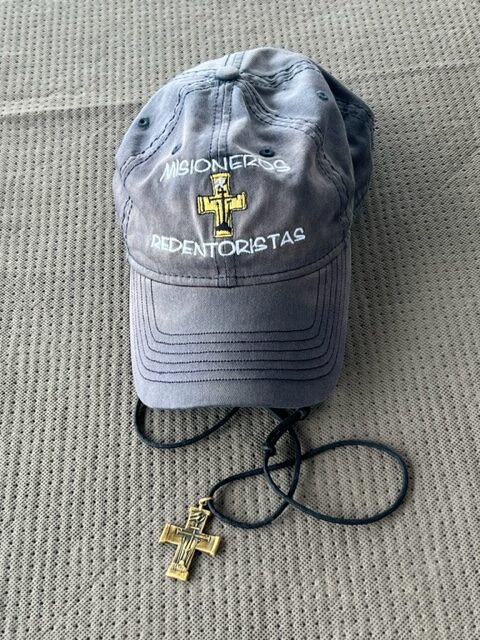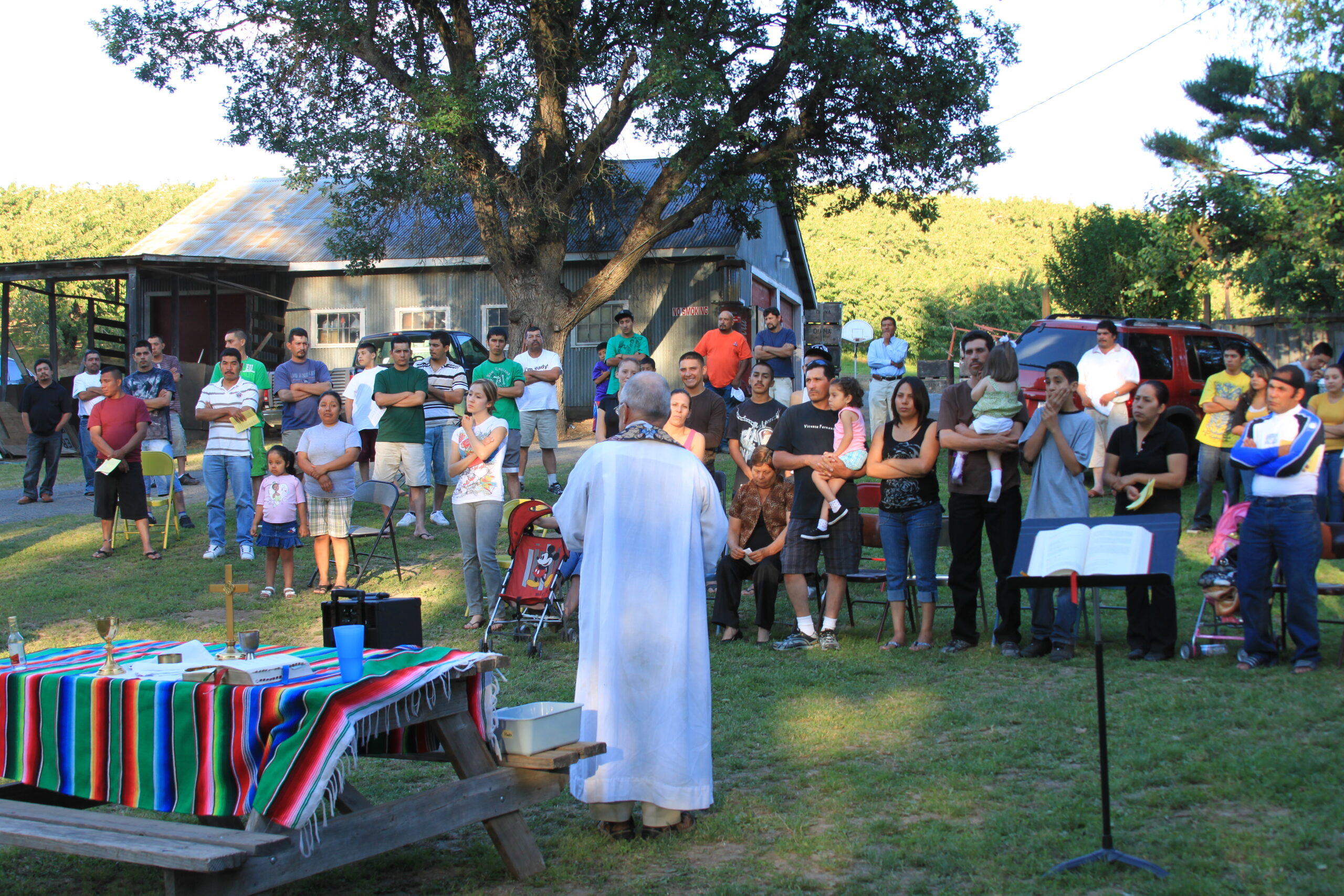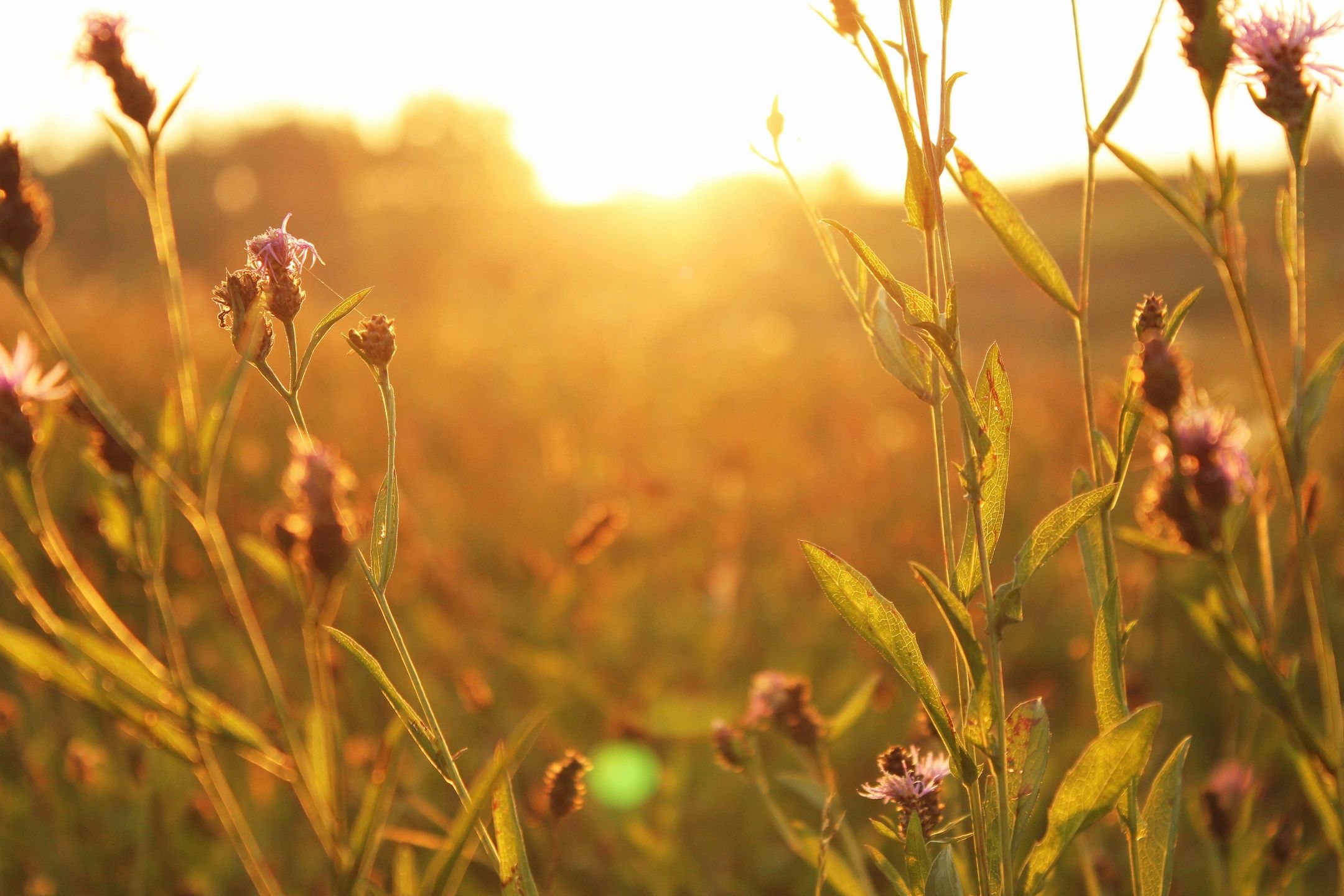Eucharist today: Masses where Migrants gather / Misas donde los migrantes se reunen
Here are ten themes to be covered considering participation in the Eucharist today:
- Role of the Eucharist in my own personal vocation story
- Benefits of celebration of Eucharist where migrants gather
- Exposure of obstacles to reception of First Eucharis that migrants experience
- Bishop John Steinbock’s reflection at Fresno Convocation of Clergy, 2010
- “You only have the time that God gives you”
- Responsibility of the priest to make the word and the sacramental presence of Christ present for the People of God
- Remember that the sacraments of Baptism, Confirmation and Eucharist are sacraments of initiation
- Involve the parents in the sacramental preparation of children
- The place of Mystagogia, continuing education and spiritual development
- Quality migrant ministry can inspire the ordinary ministry of our communities
Aquí hay diez temas considerando participación en la eucaristía hoy:
- Papel de la Eucaristía en mi propia historia vocacional personal
- Beneficios de la celebración de la Eucaristía donde se reúnen los migrantes
- Exposición de obstáculos a la recepción de la Primera Comunión que experimentan los migrantes
- Reflexión del obispo John Steinbock en Fresno Convocación de los Cleros, 2010
- “Solo tienes el tiempo que Dios te da”
- Responsabilidad del sacerdote de hacer presente la palabra y la presencia sacramental de Cristo para el Pueblo de Dios
- Recuerde que los sacramentos del Bautismo, la Confirmación y la Eucaristía son sacramentos de iniciación.
- Involucrar a los padres en la preparación sacramental de los niños.
- El lugar de mystagogia, educación continua y desarrollo espiritual
- Un ministerio migrante de calidad puede inspirar el ministerio ordinario de nuestras comunidades.
The blessing of Masses where migrants gather
After preaching a parish mission in 1997 in The Dalles, Oregon, several orchard owners told me that if I really wanted to know the Hispanic community there, I should return in June for the cherry harvest. I accepted their invitation and they set up a schedule for me to say Masses in about 15 orchards. I arrived in June 1998 with two lay missionaries. We visited many orchards and set up a schedule for Masses, first at the orchards identified by the community and we added a few more orchards to fill our schedule. At the Masses, after the opening prayers the lay missionaries took the children for liturgy of the word and after I finished a homily for the parents, the children returned for the rest of the Mass. After the Masses we had dinner with some of the workers and their families. We ended up saying Masses in 23 camps that first summer.
The foreman of an orchard not on our original list asked if we could have Mass at his orchard. I told him that it needed to be cleared with his owner first. Later he told me that at first the owner did not want Mass at the orchard, but after two days of requests from workers, he relented. The Mass was only a few days before the end of the harvest. To be gracious, the owner presented me with a ten-pound box of cherries after the Mass. The following year when I asked the owner for permission to offer Mass at the orchard, he not only said yes, he asked if it could be early in the harvest. When I asked why he wanted it earlier, he said, “Last year after the Mass we had no fights and no one getting drunk for three days.” He wanted get the harvest to get off to a better start.
Many of the people attending Mass in the orchards find it difficult to attend Masses in churches. There is the difficulty of transportation, the hours of the ordinary Masses are at times when the people are working, and it is difficult for people to find out where Masses take place near areas where they work. People express great gratitude for the Masses. During this summer of COVID19 the appreciation was seen in greater enthusiasm during the Masses. Many told me that it was their first opportunity to attend Mass since March.
At one orchard, I knocked on doors inviting people shortly before Mass and one young woman, perhaps 25 years old came to the door with her rosary in hand. I had interrupted her in prayer, and she thanked me saying that she had not heard about the Mass in the camp that evening. When I asked for readers, she volunteered. After the Mass, she said that she never missed Mass before the closing of the churches for the pandemic. She told me that she said the rosary every day since the pandemic began.
I suspect that there are many more people who appreciate our small efforts to make Mass available outside the ordinary places of worship.
(Tomorrow: Obstacles to receiving the sacraments)
Las misas donde se reúnen los migrantes
Después de predicar una misión parroquial en 1997 en The Dalles, Oregon, varios propietarios de huertas me dijeron que si realmente quería conocer a la comunidad hispana allí, debería regresar en junio para la cosecha de cerezas. Acepté su invitación y establecieron un horario para que dijera misas en unas 15 huertas. Llegué en junio de 1998 con dos laicos misioneros. Visitamos muchas huertas y establecimos un horario para las Misas, primero en las huertas identificadas por la comunidad y agregamos algunas huertas más para llenar nuestro horario. En las misas, después de las oraciones de apertura, los laicos misioneros llevaron a los niños para la liturgia de la palabra y después de que terminé una homilía para los padres, los niños regresaron para el resto de la misa. Después de las misas cenamos con algunos de los trabajadores y sus familias. Terminamos celebrando misas en 23 campamentos ese primer verano.
El mayordomo de un huerto que no estaba en nuestra lista original preguntó si podíamos tener misa en su huerto. Le dije que primero tenía que aclararlo con su dueño. Luego me dijo que al principio el dueño no quería misa en la huerta, pero después de dos días de pedidos de los trabajadores, cedió. La misa fue solo unos días antes del final de la cosecha. Para ser amable, el dueño me regaló una caja de diez libras de cerezas después de la misa. Al año siguiente, cuando le pedí permiso al dueño para ofrecer misa en la huerta, no solo dijo que sí, sino que preguntó si podía ser temprano en la cosecha. Cuando le pregunté por qué lo quería antes, dijo: “El año pasado, después de la misa, no hubo peleas y nadie se emborrachó durante tres días”. Quería que la cosecha tuviera un mejor comienzo.
Muchas de las personas que asisten a misa en las huertas tienen dificultades para asistir a las misas en las iglesias. Existe la dificultad de transporte, el horario de las Misas ordinarias es en momentos en que la gente está trabajando y es difícil para la gente saber dónde se llevan a cabo las Misas cerca de las áreas donde trabajan. La gente expresa gratitud enorme por las misas. Durante este verano de COVID19 la apreciación se vio con mayor entusiasmo durante las Misas. Muchos me dijeron que era su primera oportunidad de asistir a misa desde marzo.
En una huerta, llamé a las puertas para invitar a la gente antes de la misa y una mujer joven, quizás de 25 años, llegó a la puerta con su rosario en la mano. La había interrumpido en oración y ella me agradeció diciendo que no sabía de la misa en el campamento esa noche. Cuando le pedí lectores, se ofreció como voluntaria. Después de la misa, dijo que nunca faltó a misa antes del cierre de las iglesias por la pandemia. Me dijo que rezaba el rosario todos los días desde que comenzó la pandemia.
Sospecho que hay muchas más personas que aprecian nuestros pequeños esfuerzos para que la Misa esté disponible fuera de los lugares de culto ordinarios.
(Mañana: Obstáculos para recibir los sacramentos)
